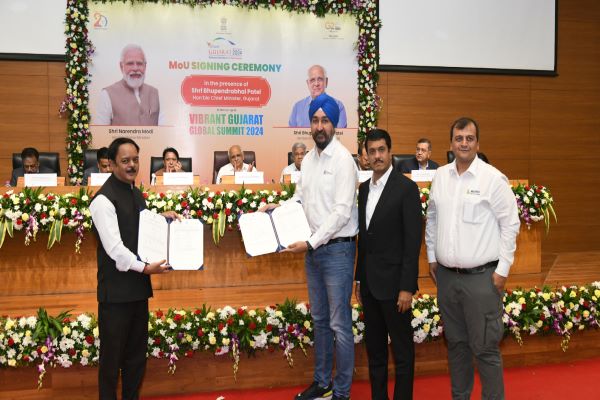
The Indian government has intensified its scrutiny of Gensol Engineering’s renewable energy projects, valued at approximately Rs 7,000 crore, following regulatory action by the Securities and Exchange Board of India (Sebi). With allegations against the company’s promoters, including fund diversion and document forgery, the government is considering whether to order a rebid of the company’s public sector contracts to protect public funds and ensure timely project completion.
Government Scrutiny on Gensol’s Renewable Energy Contracts
The Centre is reviewing all the renewable energy projects awarded to Gensol Engineering Pvt Ltd, especially those with public sector entities like NTPC Ltd, Damodar Valley Corporation (DVC), and The Singareni Collieries Company Ltd. These contracts primarily concern solar engineering, procurement and construction (EPC) and battery energy storage systems (BESS).
The government’s review follows an interim order from Sebi, dated April 15, which barred Gensol’s promoters, Anmol Singh Jaggi and Puneet Singh Jaggi, from accessing the securities market due to allegations of fund diversion and document forgery. Sebi stated that these contracts require strict financial discipline, timely execution, and reputational credibility to maintain institutional trust. Given the capital-intensive nature of these contracts, any deviation from these expectations could severely impact public trust.
Ministries Closely Monitoring the Situation
The Ministry of New and Renewable Energy (MNRE) and the Ministry of Power are closely monitoring the developments to protect the government’s significant financial exposure, which includes over Rs 1,000 crore in loans to Gensol. Notably, the Indian Renewable Energy Development Agency Ltd (IREDA) has lent Rs 663 crore, while the Power Finance Corporation Ltd (PFC) has provided a loan of Rs 350 crore.
Additionally, PFC has filed a complaint with the Economic Offences Wing (EoW) of Delhi Police, accusing Gensol of submitting falsified documents to secure funding. These allegations have added to the already tense situation, raising concerns about the company’s ability to execute its contracts.
Gensol’s Financial Standing and Project Backlog
As of December 2024, Gensol’s order book stood at an impressive Rs 7,000 crore, with nearly Rs 2,928 crore secured in solar EPC projects alone during the third quarter. However, given the regulatory issues surrounding its promoters, Gensol may face difficulties in fulfilling these contracts, especially those with public sector undertakings.
If Gensol is unable to assure its capacity to complete these projects, the government may initiate a fresh bidding process to avoid the creation of non-performing assets (NPAs) and ensure the timely and efficient execution of renewable energy projects critical for India’s sustainability goals.
The Risk of Delayed and Non-Performing Assets
The Indian government’s decision to review these contracts underscores the importance of financial discipline and transparency in executing large-scale infrastructure projects. With renewable energy playing a pivotal role in India’s transition to sustainable energy, it is essential that these projects are managed effectively to avoid any setbacks in the country’s green energy ambitions.
Given the gravity of the situation, the government is likely to take swift action to safeguard public investments and ensure that the progress of India’s renewable energy initiatives remains on track, regardless of corporate challenges.


